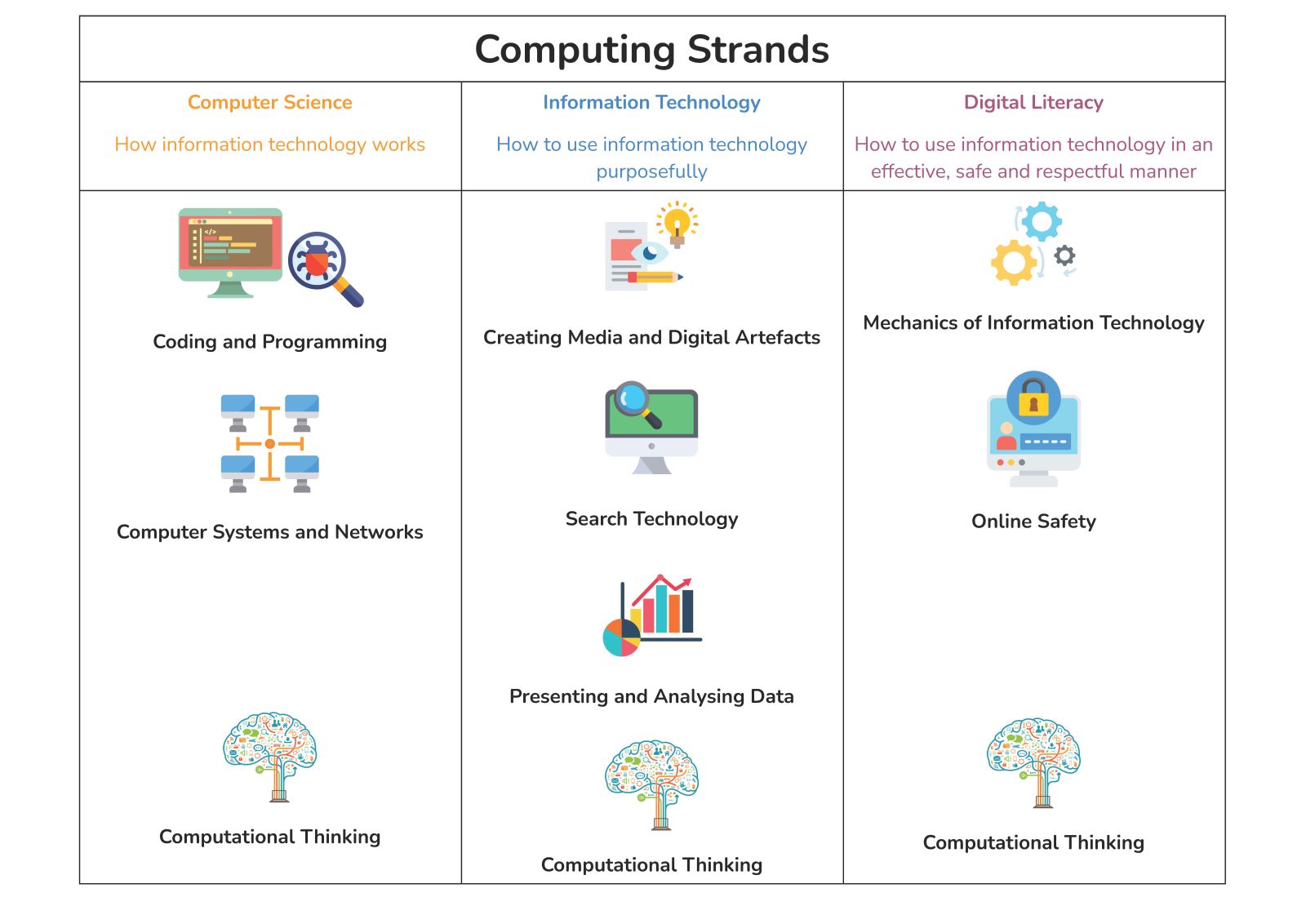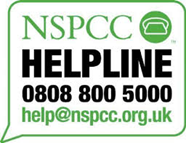Our goal for Computing education is that children are able to use computational thinking and creativity to understand and change the world, by developing:
-
knowledge of programming;
-
digital literacy; and
-
understanding of how to use technology safely and respectfully.
There are three strands within computing:
Computer Science - pupils look, discover and create programmes and code to solve problems.
Digital Literacy - pupils focus on how to be safe online.
Information Technology - pupils focus on the discrete skills of how technology works and how to use it effectively.

These skills are taught across each year group, building upon one another.
In EYFS and Key Stage 1, we aim to provide the children with a solid foundation in digital literacy, basic computer science concepts (such as sequencing) and foundation skills for using technology (such as iPads).
In Key Stage 2, the children are provided with the opportunity to revisit and build upon those skills through using the technology across the whole curriculum and developing further understanding of computing concepts.
Please have a look at our Whole School Computing Overview for more detail about this.
Developing 21st century digitally literate learners, prepared for the world and its challenges beyond the school walls, is an integral part of the children’s learning. We have supported this by providing:
- a set of iPads in every classroom in Years 1 - 6;
- sets of laptops which children use for word processing;
- PCs for the Foundation Stage classes;
- Beebots (Floor Robots); and
- Interactive Whiteboards (IWBs) in each classroom as well as the Art Block and Music Room.
KS2 also uses Google Classroom and Google Suite tools within the class to share and complete learning across the curriculum.
Across the Curriculum
Additionally, the teaching of ICT is incorporated across all subject areas. For example, in:
English, using word processing programmes to type and publish our writing. Reading Eggs is proving to be a popular resource to develop reading skills right up to year six;
Maths, Doodle Maths develops children’s skills, confidence and fluency through lessons, homework tasks, and games. Beebots, programmable floor robots, teach control, directional language and programming. Times Tables Rock Stars is a tool used to practise times tables in a creative and fun way;
Science, data loggers enable quick and accurate recording of results for experiments;
Humanities, Popplet is used to help children to capture and organise their learning and ideas by, for example creating a mind map of a topic or event;
Art, Pic Collage allows pupils to create amazing collages using photos, stickers and text with a variety of fonts and frames. Chatterpix can enhance children’s images by enabling characters to ‘speak’;
Music, GarageBand is used to extend learning in different areas of the music curriculum. The use of headphones also allows pupils to practise independently; and
PE, recording and evaluating sporting techniques can be shared with the class, group or individual child providing useful feedback.
Across the curriculum iPads are used by staff to capture examples of children’s work. This can then be used for assessment purposes, to display work or to share with the class using the projector.
For questions about the provision of Computing at William Tyndale, please contact the subject leader, Toni Wilson, via parentmessages@williamtyndale.islington.sch.uk
Safety
Children learn about using equipment safely from using electricity safely to staying safe online. Online safety is also something we rely on being supported at home. For more information please see our Online Safety page:
Click for Online Safety page
Reporting issues:


